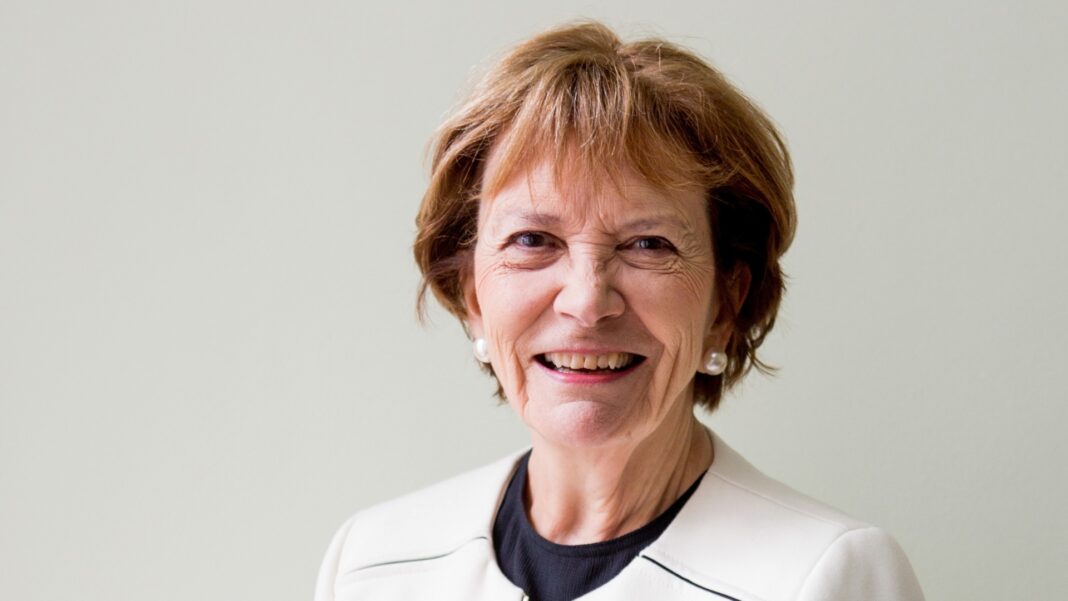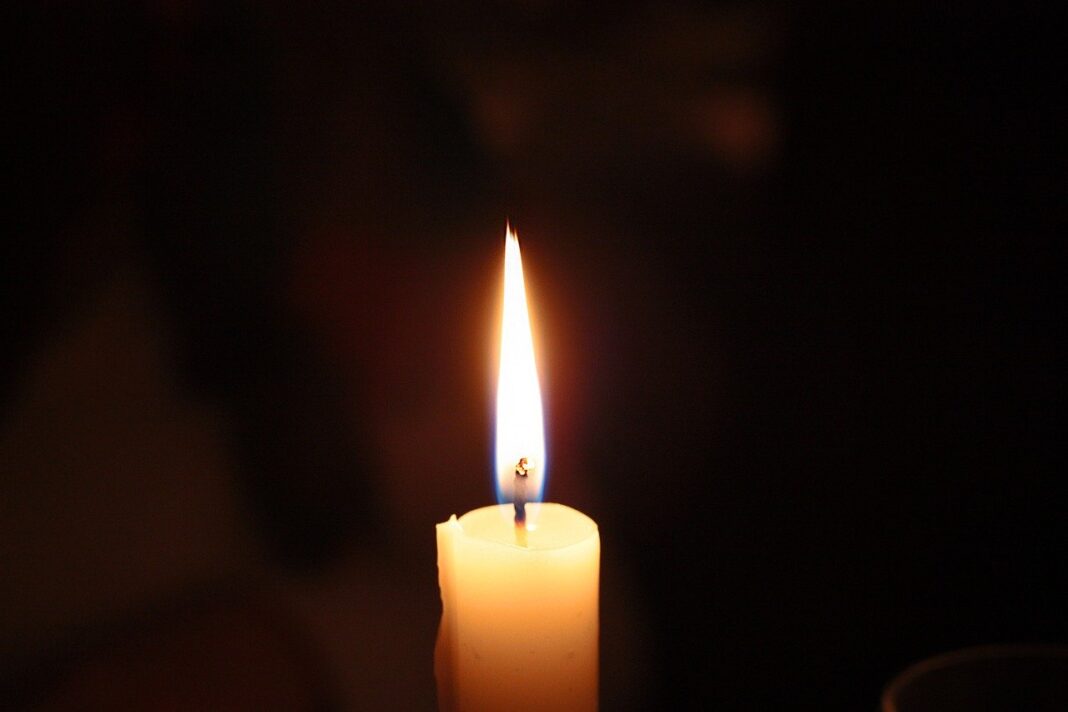Baroness Joan Bakewell talks about the lockdown, the important work of humanist funeral celebrants, and why we all need video technology skills.

Imagine being unable to say goodbye to a loved one who is dying – and then later, being unable to attend their funeral ceremony because you are ‘self-isolating’ or ‘shielding’. All these new terms we’re learning this year — ‘shielding’, ‘social distancing’, and ‘self-isolating’. So many new things for us to learn.
‘It has never been more valuable for us to have the skills to use a computer, laptop, mobile phone, or tablet to be able to keep in touch via video calls.’
And, if you don’t know your ‘Zoom’ from your ‘FaceTime’ or have the skills to make a video call, it’s not too late to learn. On their website, Age UK has some easy to follow guides for making video calls from all different types of devices including computers and mobile phones.
But video technology is not only being used to talk to friends and family, it is also being used to conduct humanist funerals in these strange times and there are families who are having to say goodbye to loved ones in hospital using video calls instead of in person.

Non-religious funerals and the important work of humanist funeral celebrants
Throughout the lockdown, I’ve been particularly impressed by the steps humanist funeral celebrants have been taking to make their non-religious funeral ceremonies possible — from small family funerals to online ceremonies.
A humanist funeral is a non-religious ceremony. Each one is written specifically to celebrate the life of the person who has died, the relationships they forged, and the legacy they left behind.
Under normal circumstances, a humanist funeral celebrant will visit the closest relatives to the person who has died in order to discuss funeral wishes and the content of the proposed ceremony. But, as a result of the lockdown – and in order to protect both clients and themselves – celebrants are now conducting their ‘family visits’ by telephone or video call.
Along with clergy, humanist celebrants have been classified as ‘key workers’ by the government, meaning they can make sure non-religious people still have a ceremony that reflects who they were and how they lived. Celebrants can still attend crematoria and gravesides to conduct ceremonies.
Some crematoria have in-house equipment to enable ceremonies to be live-streamed into people’s homes. Where this is not available, some families are choosing instead to ask celebrants to hold virtual funeral ceremonies online – where both the celebrant and mourners join in from their own homes.
It’s really important work – dealing with grief, forging a human connection with people at a time of incomparable grief, and using their stories to create a ceremony that helps them to mourn their loved one better. This work is especially challenging right now.
I heard of one humanist ceremony recently that was live-streamed to over 100 mourners who participated from their own homes. With no coffin present, the celebrant symbolically placed a lighted candle in the foreground, as poems, tributes and letters were read out, and specially chosen music was played. At the point that the committal would have taken place, the celebrant blew out the candle. People felt comforted. One said, ‘What astonished me was that it achieved the sense of a real funeral and I felt as if I was actually there.’

Due to the lockdown and social distancing rules, traditional funerals as we know them here in the UK, are not currently possible and it is likely that they won’t be available for some time to come, but if you feel daunted by the prospect of taking part in a ceremony online, please don’t be. Start practising making video calls today — you will realise there is nothing to fear and everything to gain.
About Baroness Joan Bakewell
Baroness Joan Bakewell is a journalist, television presenter, author, playwright, Labour Party peer, and the presenter of the BBC Radio 4 programme ‘We Need to Talk About Death’. In 2017, she was awarded Humanist of the Year for services to humanism.
Joan Bakewell and Humanism
Joan says:
‘I’m a humanist, which I suppose is a way of saying that I’m not religious in the traditional sense, but I still have beliefs: that we should live good, ethical lives, based on our empathy and compassion for other people. Humanists UK, is one of the charities I work closely with all year round. It’s the leading charity working on behalf of non-religious people in the UK, campaigning for fairer society and a secular state, and providing humanist funerals, weddings, and naming ceremonies.’
Humanists UK would like to thank Baroness Joan Bakewell for this article.





